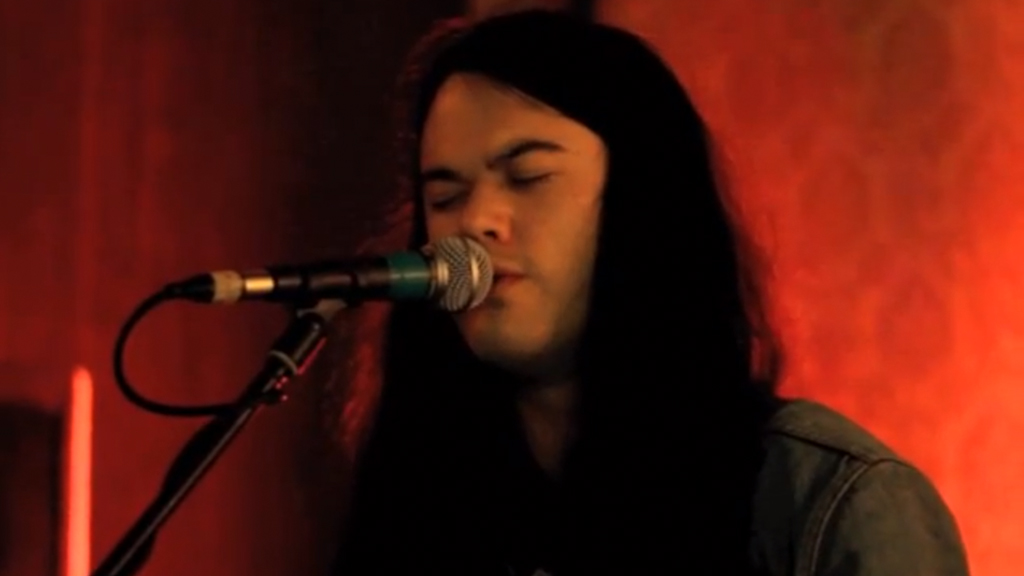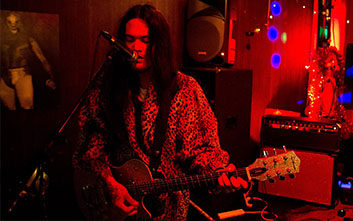Despite already having three albums under his belt, plus a staggering eleven EPs and a compilation tacked onto the list, Roy Irwin isn’t down with being described as prolific. Identifying more with artists like Jay Reatard, who’s extensive catalogue included demos and outtakes, Irwin prefers to simply get it out there. His latest creative effort is his fourth LP, S.O.D.A, which is due for release next month.

Raw, aggressive, apathetic; it’s the perfect storm for Cool Runnings’ Roy Irwin to concoct a brilliant album. His new effort S.O.D.A is for the lovers of the punk manifesto.
A native New Zealander, also a member of Auckland punk band Cool Runnings, Irwin has been working on his solo material for around six years. Talking about his solo project, Irwin has previously cited his inspiration in terms of “negativity, love, heartbreak, nihilism and sometimes it may be something dumb like smoking weed and eating a cheeseburger.” And S.O.D.A seems to continue in a similar theme. Describing the inspiration for this album as “bad acid trips, misspent youth, struggles with Work & Income, feeling like a piece of shit, death and feelings of depression and an existential crisis,” there are definitely some similarities.
As well as the familiar complaint of downtrodden youth that feels so synonymous with punk, Irwin’s writing springs from the same well musically. Melding a punk influence, that takes the true foundation of the ‘punk sound’, with hazy, almost dreamlike melodies, his songwriting on S.O.D.A is something like punk on opiates – rather than amphetamines.
Recorded entirely by Irwin in his bedroom, the DIY character of his sound is fairly inescapable. Opening with the compressed sound of drum pads and an almost 8 bit melody, the first track Demon’s Cave has nothing of a reverberating studio sound about it. But nestled inside the lo-fi arrangements is Irwin’s very real talent for melody. Sparking a similar feel to bands like Joy Division, where melody was king within their sparse but beautiful arrangements.
With three instrumentals punctuating S.O.D.A, these provide the outlet for Irwin’s dreamier musings. From the kaleidoscopic wind down of 8000 Miles (Outro) to the hazy Foxycontin; a fitting word play on the synthetic opioid brand name. Metal Breth showcases another addictive guitar line from Irwin, and brings in an apathetic style of grunge influence. Underpinned by a heftier bass line and channelling that sweet depression in the lyrics, vocals set back in the mix has a psychedelic feel to them – in the midst of the 90’s dirge.
The punk influence is tangible throughout the album in various elements, but it really surfaces in the second half. As the small narratives that make up Irwin’s songs turn a little darker, with thoughts of piss and shit, the sense of complaint is accompanied by heavier bass lines and more urgent, distorted riffs. Title track S.O.D.A, an acronym for “Some Other Dumb Asshole”, leans into a lazy, atonal vocal that could easily be pumped up to full punk volume. But as it comes with a warm, surf feel riff, this kind of lo-fi punk works well.
Turning full garage punk on P.I.S.S, there are nice messy guitar riffs and droning vocals that scream “need a drink I’m going crazy”. A chugging bass line and even a transistor radio style vox pop to introduce the guitar solo. And given his affinity for addictive melody, the wailing solo really hits the spot. Coming back down on following tracks, S.O.D.A culminates with the looming WINZ Some that signs off with punked out scrawl. Rock bottom feel lyrics with the charming refrain “There’s piss on the sheets / there’s shit on my head”, and aptly named for New Zealand’s Work & Income service, this one finishes off the album with suitable energy and aggro.
There’s something to be said for not over thinking or analysing the creative process, the album may not make it through in one piece, but it is certainly all the more interesting for it. A chimera of a kind, with track lengths rarely touching the three minute mark, S.O.D.A races hungrily through Irwin’s artistry, and his desire to keep moving. The transience is almost tangible but, ironically, with the layers of crafting that make up this relatively lo-fi record, it is only through close attention that S.O.D.A really comes into its own.



